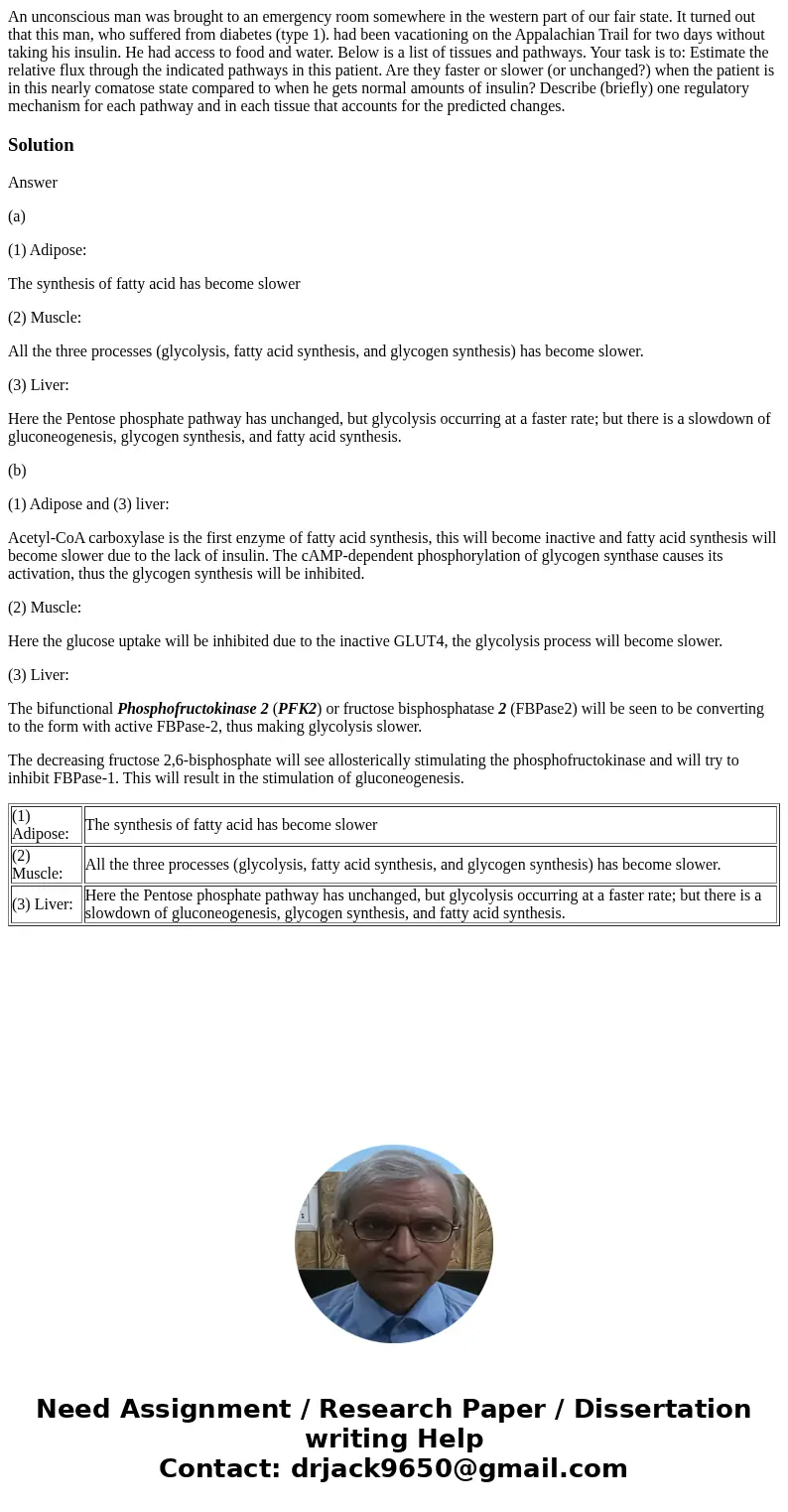An unconscious man was brought to an emergency room somewher
Solution
Answer
(a)
(1) Adipose:
The synthesis of fatty acid has become slower
(2) Muscle:
All the three processes (glycolysis, fatty acid synthesis, and glycogen synthesis) has become slower.
(3) Liver:
Here the Pentose phosphate pathway has unchanged, but glycolysis occurring at a faster rate; but there is a slowdown of gluconeogenesis, glycogen synthesis, and fatty acid synthesis.
(b)
(1) Adipose and (3) liver:
Acetyl-CoA carboxylase is the first enzyme of fatty acid synthesis, this will become inactive and fatty acid synthesis will become slower due to the lack of insulin. The cAMP-dependent phosphorylation of glycogen synthase causes its activation, thus the glycogen synthesis will be inhibited.
(2) Muscle:
Here the glucose uptake will be inhibited due to the inactive GLUT4, the glycolysis process will become slower.
(3) Liver:
The bifunctional Phosphofructokinase 2 (PFK2) or fructose bisphosphatase 2 (FBPase2) will be seen to be converting to the form with active FBPase-2, thus making glycolysis slower.
The decreasing fructose 2,6-bisphosphate will see allosterically stimulating the phosphofructokinase and will try to inhibit FBPase-1. This will result in the stimulation of gluconeogenesis.
| (1) Adipose: | The synthesis of fatty acid has become slower |
| (2) Muscle: | All the three processes (glycolysis, fatty acid synthesis, and glycogen synthesis) has become slower. |
| (3) Liver: | Here the Pentose phosphate pathway has unchanged, but glycolysis occurring at a faster rate; but there is a slowdown of gluconeogenesis, glycogen synthesis, and fatty acid synthesis. |

 Homework Sourse
Homework Sourse